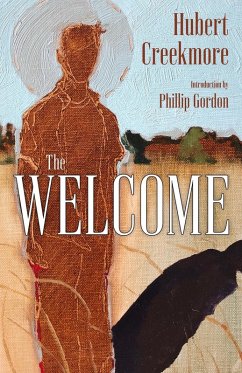Ashton, Mississippi, provides the deceptively sterile, conforming, and blindly respectable background in The Welcome, a novel written by Hubert Creekmore in 1948. After moving to New York following Jim's wedding, Don returns home, routed by the Depression of the 1930s. He finds Jim stuck in an unhappy marriage, and Don's arrival intensifies Jim's misery. As Jim sinks into alcoholism, Don connects with a new love interest, and their mutual friends persistently try to unlock the secrets between Don and Jim.
Ahead of its time in the depiction of same-sex relationships, the novel caused a scandal upon release. As Phillip "Pip" Gordon says in the new introduction written for this edition, "the majority of gay fiction prior to The Welcome structured tragedy as a natural outcome for being gay. Creekmore aimed higher and sought a narrative that does not show the same-sex lovers as flawed for their desires; rather, the problem is context."
Creekmore was a prolific writer, literary critic, editor, translator, photographer, and librettist, and was good friends with famed Mississippi author Eudora Welty. However, Creekmore never had the success of his peers, and his work has been neglected, most of it falling out of print. This new edition recovers a significant addition to the canon of LGBTQ southern literature and a Mississippi author for a generation of new readers and scholars.
Ahead of its time in the depiction of same-sex relationships, the novel caused a scandal upon release. As Phillip "Pip" Gordon says in the new introduction written for this edition, "the majority of gay fiction prior to The Welcome structured tragedy as a natural outcome for being gay. Creekmore aimed higher and sought a narrative that does not show the same-sex lovers as flawed for their desires; rather, the problem is context."
Creekmore was a prolific writer, literary critic, editor, translator, photographer, and librettist, and was good friends with famed Mississippi author Eudora Welty. However, Creekmore never had the success of his peers, and his work has been neglected, most of it falling out of print. This new edition recovers a significant addition to the canon of LGBTQ southern literature and a Mississippi author for a generation of new readers and scholars.
Dieser Download kann aus rechtlichen Gründen nur mit Rechnungsadresse in A, D ausgeliefert werden.









